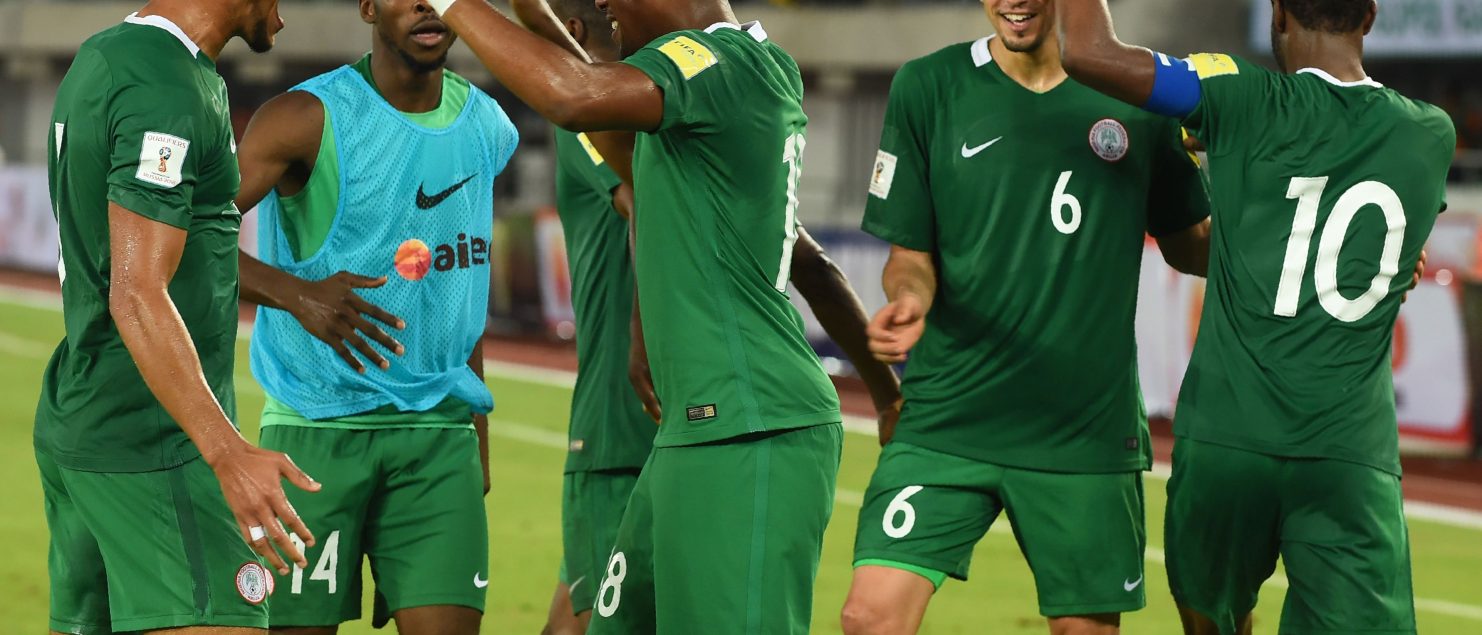Rohr must continue to trust in his young guns if Nigeria are to go far in Russia
Yesterday, Nigeria manager Gernot Rohr announced the Super Eagles’ final 23-man squad for the World Cup. The likes of Leon Balogun and John Obki Mikel will be hoping to lead Nigeria in what may very well be their final international tournament, but it is the youngsters, not the veterans, who Rohr will have to rely on if Nigeria are to advance past a tricky Group D.
After first-choice goalkeeper Carl Ikeme was diagnosed with leukemia last summer, Rohr turned to 31-year-old Daniel Akpeyi to take over in goal. That trust didn’t last long: against South Africa, Akpeyi mishandled a cross and failed to exude any semblance of authority in a 0-2 defeat. Ikechukwu Ezenwa came in and only conceded twice in the last four qualifiers, as Nigeria sealed World Cup qualification. It seemed inevitable that the 29-year-old would keep his spot, but in November’s friendly against Argentina, Rohr opted for Akpeyi. It backfired completely, with Akpeyi conceding two goals early on. Down 2-1 at halftime, Rohr turned to his bench, and subbed on 22-year-old right back Tyronne Ebuehi for Shehu Abdullahi, as well as 19-year-old Francis Uzoho for Akpeyi.
This halftime change, despite it being a friendly, may very well have triggered a sea change in Rohr’s ideas for Russia. The two youngsters impressed as Nigeria bounced back from a halftime deficit to beat Argentina 4-2. Since then, Rohr has trusted Ebuehi and Uzoho in preliminary friendlies. Uzoho has started in goal for the past four friendlies, while Ebuehi, who just last month joined Benfica on a five-year deal, has split game time with Shehu.
While it may seem tempting and risk-averse to opt for the more experienced Shehu (24 caps) and Ezenwa (24 caps), Rohr would be wise to continue his trust in Ebuehi and Uzoho, and start both in the World Cup.
Uzoho, despite spending most of his season in Deportivo’s second team, and despite conceding five goals in three friendlies, has proven he is ready to be Nigeria’s #1 for this tournament. At 6’5″, he is taller than both Akpeyi and Ezenwa, and he is quick off his line and fine at stopping aerial balls. Moreover, he exudes something that Akpeyi and Ezenwa constantly fail to give off: a sense of calm. With his ever-improving anticipation and positional awareness, he can instill tranquility in a backline that can vary between 4 at the back or 5 at the back.
At 19, Uzoho finds himself in the same place a 19-year-old Vincent Enyeama was during the 2002 World Cup. After making his competitive debut against England, Enyeama replaced the retired Ike Shorunmu as Nigeria’s #1, and held onto the starting spot until his international retirement. Now, with Enyeama nearing the end of his footballing career, the natural heir to the throne should not be a middle-aged stopgap in Ezenwa or Akpeyi, but the present and the future in between Nigeria’s sticks–Francis Uzoho.
Despite entering the squad as somewhat of an unknown entity, Tyronne Ebuehi has also proven himself worthy of starting for Nigeria this summer. Not only is he more dangerous going forward than Shehu, an advantage that will especially be vital if Rohr decides to play with three center backs, but he is also more composed defensively. While Shehu is more developed physically, Ebuehi has the attacking and defensive tools to be not only be a vital wingback, but to also be a solid right back depending on which formation Rohr chooses.
Of course, one could attribute Shehu’s dismal performances in the preliminary friendlies to his fasting during Ramadan, and perhaps not being at peak physical condition as a result, but even so, Ebuehi adds far more versatility and creativity to the Nigeria team, and he and Brian Idowu should be Nigeria’s starting fullbacks for the World Cup.
There’s promising youth throughout Nigeria’s squad: Wilfred Ndidi (21) will play a vital role in midfield next to John Obi Mikel, while Oghenekaro Etebo (22) could provide a boost of energy in the middle when necessary. Furthermore, Kelechi Iheanacho (21) and Alex Iwobi (22) will have to be at the top of their game in order for Nigeria to have a solid link between midfield and attack, as they are two natural creators who can break down a deep block and threaten stalwart defenses.
Against Lionel Messi’s Argentina, a star-studded Croatia team, and the underdog heroes of the Euros (Iceland), Nigeria will have a mountain to climb when it comes to getting out of Group D. If they are to beat the odds and advance into the knockout stage, Gernot Rohr must continue to trust in his young Super Eagles. After all, they aren’t just the future of Nigeria–they’re the present as well.
By: Zach Lowy
Photo: Pius Utomi Ekpei/AFP/Getty Images
